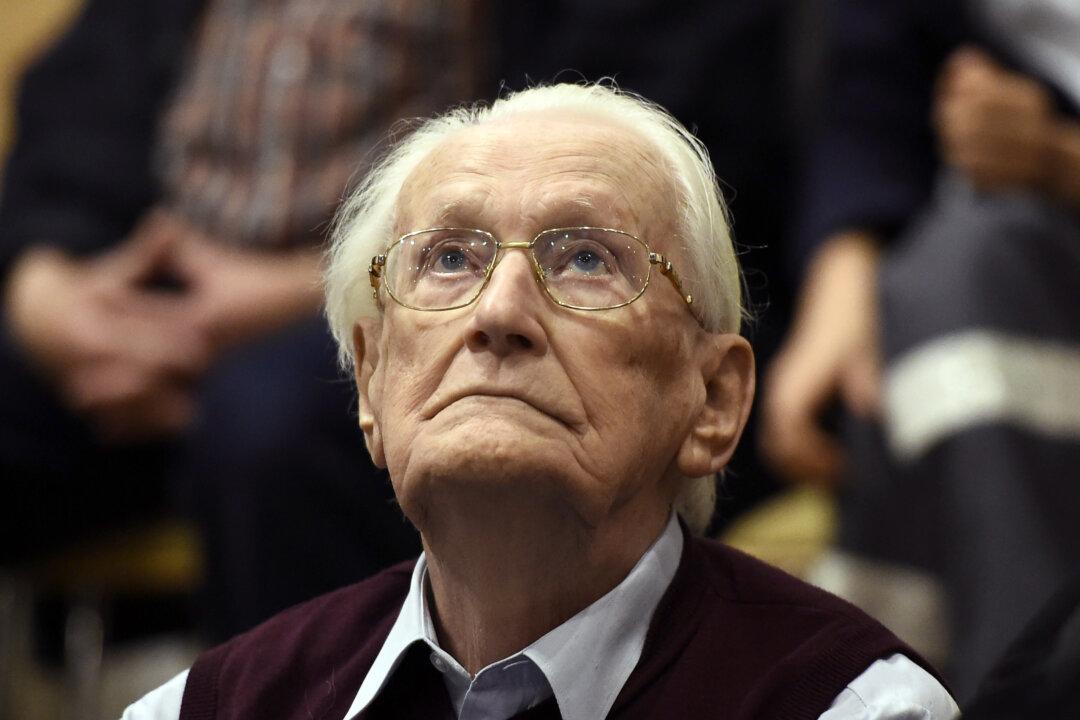LUENEBURG, Germany—A 94-year-old former SS sergeant who served at the Auschwitz death camp was convicted Wednesday on 300,000 counts of accessory to murder and sentenced to four years in prison.
Oskar Groening testified during his trial at the state court in Lueneburg, in northern Germany, that he guarded prisoners’ baggage after they arrived at Auschwitz and collected money stolen from them. Prosecutors said that amounted to helping the death camp function.





